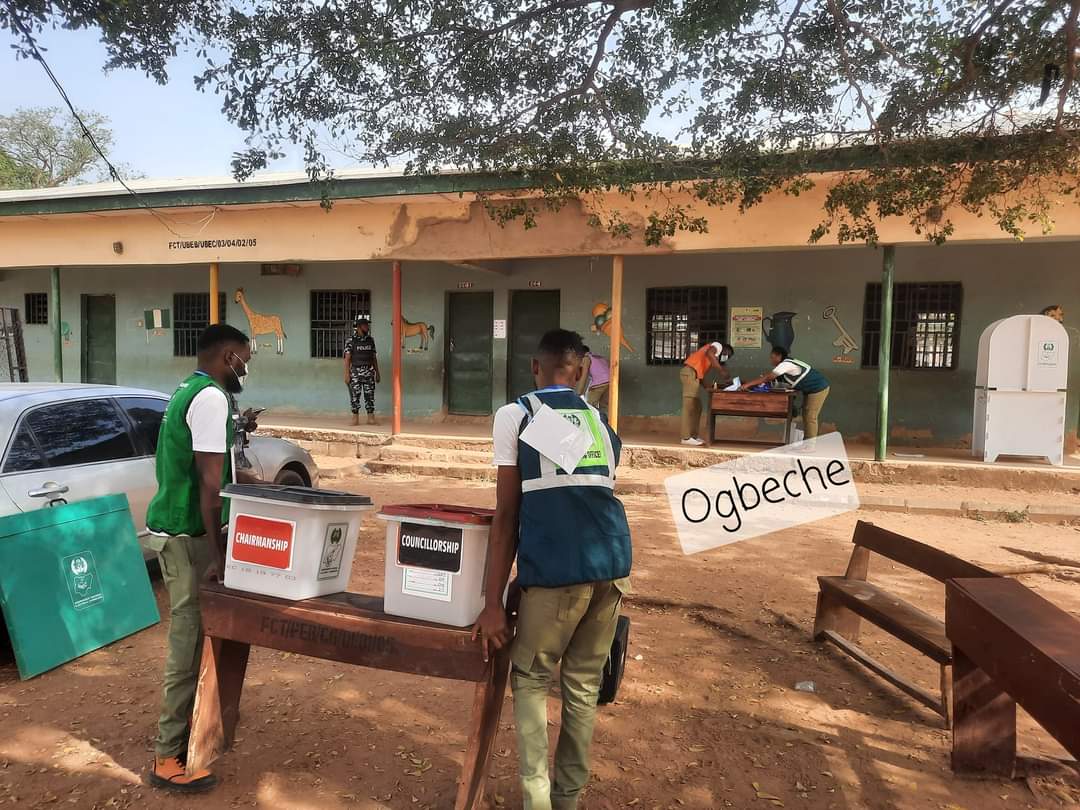Godsgift Onyedinefu
Voter apathy, malfunctioning of the Biometric Accreditation System (BVAS) are major challenges that dogged the conduct of the Federal Capital Territory (FCT) Area Council Elections, the Centre for Democracy and Development (CDD) said in its preliminary findings on Saturday.
In the preliminary findings released at the close of polling and signed by its Director, Idayat Hassan, the frontline pro-democracy think tank also flagged vote buying, as one of the anomalies which affected the smooth conduct of the polls.
According to the Centre, Stakeholders must work to address these challenges as the country heads towards the 2023 general elections.
On the issue of the effectiveness of the BVAS, CDD noted that heading into the FCT Area Council elections, the functionality of the election technology was one of the major issues, which preoccupied the attention of election stakeholders. The group stressed that the ensuring effectiveness and seamless operation of the BVAS remains a critical component for the smooth conduct of the polls. CDD data showed that in terms of the number of minutes spent on accreditation for areas where the BVAS worked, voters spent an average of 8-10 minutes on the accreditation process.
“This translates roughly to eight voters being accredited in one full hour. CDD observers also reported that across all the Area Councils, AMAC recorded the most number of functional BVAS. The Area Councils where observers reported non-functional BVAS was Kuje and Abaji. Data from CDD field observers indicated that the functionality of BVAS continued to be a major source of hitches and delays in the electoral process,” CDD stated
“In a few isolated cases, such as Abaji Ward 001 PU 003, Ward 06 PU 003, observers reported no issues in the functionality of BVAS. However, in PU 003, BVAS failed to capture the biometrics of voters thereby delaying accreditation and voting, resulting in frustration for voters waiting in lines. At Abaji Northeast Ward 02, PU 001, CDD observers reported that fingerprint and face capturing functions of the device did not work well for aged voters leading to their inability to cast their ballot. It was observed that an INEC official had to instruct that the BVAS should be used to capture the biometrics of younger voters first, before being used for the elderly,” it added.
CDD further expressed concern that in areas like Karu, Gwarinpa, Sunnyville Estate, Jikwoyi, and Galadiwa among others, its observers reported voting going on as at 3:40 pm, largely due to delayed accreditation occasioned by issues relating to BVAS. “In PU001 in Zuba, the BVAS success rate was reported to be very low, leading to delays in the accreditation and voting process. Several voters complained that the device worked slowly, frustrating eligible voters, many of who returned home without voting.”
Commenting on the issue of low voter turnout, the group recalled it had earlier admonished the political parties and candidates to do more in terms of sensitizing voters and mobilizing them to come and exercise their franchise.
The group noted that the failure of the political parties to robustly canvass votes contributed to the apathy and low turnout, which characterised the election.
It said: “In Ward 5 in Abuja Municipal Council (AMAC) a Polling Station with four polling units did not record a single voter turning out to cast any vote.” CDD strongly condemned the rampant incidents of vote-buying, including crude tactics wherein party agents, asked voters who had been induced to converge in a particular location away from the polling unit to sell their vote.
“Monies which exchanged hands in the course of vote-buying and selling ranged as low as 1,000 and up to 3,000. Naira. On critical incidents, CDD reported cases of poor crowd management in several areas where there was a substantial turnout. CDD observers reported that in Ward 06, PU 003 where a group of thugs invaded the polling unit during voting and carted away the ballot boxes and other electoral materials. “In terms of gender participation in the election, CDD observers data showed that 33.2 per cent of INEC officials were women, while 66.8 per cent men in the areas where CDD deployed and observed.”

